Estimated reading time: 8 minutes
Weed control is one of the most critical aspects of growing a healthy garden. But if you don’t want to rely on harmful herbicides, you have to be creative about the way you control weeds.
Whether you are trying to grow an organic garden or simply prepping for a time when herbicides might not be available, there are plenty of natural methods you can use to stop weeds. Below, we’ll take a look at the complete list of herbicide-free weed control methods that you can use to stop weeds from taking over your garden.
Want to save this post for later? Click Here to Pin It on Pinterest!
1. Mulch
Mulch can be used to smother out existing weeds in your garden as well as prevent new weeds from sprouting. As an added bonus, mulch can also improve the quality of your soil, encouraging the growth of wanted plants while at the same time discouraging unwanted weeds.
For more information on using mulch as a weed control method, check out this article.
2. Old Newspapers
In the same way that mulch can be used to smother weeds, laying down old newspapers around your plants can stop weeds from growing in your garden as well. Also like mulch, newspapers can likewise help improve the quality of your soil.
For more information on how to use newspapers to prevent weeds, check out this article.
3. Boiling Water
If you need a way to quickly kill a few rogue weeds without spraying them with pesticide, boiling a pot of water and pouring it over the weeds is an effective option.
So long as you don’t pour the boiling water directly onto the plants that you want to keep alive, you shouldn’t have to worry about harming them. The water will quickly cool as it runs along the ground and will be harmless by the time it flows to the base of your vegetables.
For more information on how to kill weeds with boiling water, check out this video:
4. Rubbing Alcohol or Vodka
When combined with sunlight, alcohol is lethal to the plants that it comes in contact with. Its drying properties pull the moisture out of the leaves and withers the plant away in little time at all.
To make a natural, homemade herbicide using alcohol, combine two ounces of vodka or rubbing alcohol with two cups of water and a few drops of dish soap. The water will help you get more use out of the alcohol you have available while the dish soap will help boost the effectiveness of the mixture by drying out the leaves even more.
Just be careful not to spray any on the plants that you want to keep alive as alcohol will kill your vegetables just as effectively as it kills the weeds around them.
For more information on how to use alcohol as a herbicide, check out this article.
5. Vinegar
Much like alcohol, vinegar can dry out the leaves of weeds that it comes in contact with and wither away the plant. However, it’s important to note that vinegar may need to be applied multiple times in order to be effective, especially if you are dealing with weeds that have a long taproot such as dandelions.
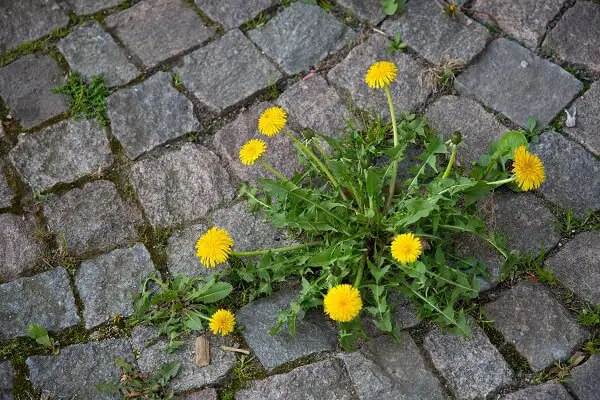
To create a vinegar-based weed-killer, mix one gallon of white household vinegar with one cup of table salt and one tablespoon of dish soap, then spray the mixture directly on the weeds as many times as it takes for the vinegar to kill them.
Just be careful not to spray the mixture directly on the soil, as both the salt and vinegar will keep anything from growing in that spot for a long period of time if you do.
For more information on using vinegar to control weeds, check out this article.
6. Flame Weeders
Flame weeders are propane torches designed for the purpose of weed control. They allow you to torch an unwanted weed, heating up its leaves to the point that the weed is no longer able to survive.
Of course, you have to be plenty careful when using a flame weeder in a number of regards. It’s essential to keep the flame well away from any plants you want to keep alive, as heat from the flame can kill plants even if the flame itself does not directly contact them. You also want to avoid using a flame weeder during periods of drought when the risk of starting a grass fire is high.
With that said, torching weeds with a flame weeder can be a very effective way to single out and eliminate problematic weeds. To learn more about how to use a flame weeder, check out this video:
7. Plastic Sheeting
Solarizing is a weed control method that involves placing plastic sheeting around the base of your plants. This method makes use of the greenhouse effect to quite literally cook any weeds beneath the sheeting while leaving plants above the sheeting entirely unharmed. However, solarizing only works as a weed control method in areas that are exposed to full sunlight.
For more information on solarizing, check out this article.
8. Corn Gluten
When sprinkled over the soil in your garden, corn gluten can keep new weeds from germinating. You don’t have to worry about it harming any garden plants that have already sprouted. In fact, corn gluten won’t kill any plant that has already germinated, regardless of whether it is a weed or a vegetable.
However, corn gluten is an effective way to help ensure to that new weeds don’t sprout. When combined with a method for killing the weeds that have already germinated, corn gluten makes for a very effective weed control method. As an added bonus, corn gluten can also help add nitrogen to the soil.
To learn more about using corn gluten to prevent weeds, check out this article.
9. Crowding
Like any plant, weeds aren’t able to grow if there isn’t any room for them. Therefore, crowding out weeds in your garden with other plants is a very effective weed control method.
To ensure that weeds have no room to grow, try planting the plants in your garden as closely together as possible. Once your plants have reached maturity, their leaves should block out most of the sunlight from reaching the ground beneath them, making it impossible for weeds to sprout up around them.
Of course, it’s worth mentioning that you need to be careful about planting your plants too close to one another. Like weeds, vegetables need room to grow as well, and you should always follow the planting instructions on your seed packet when it comes to how closely you should space your plants.
If you are able to plant your vegetables close enough together that their leaves just about touch once the plant reaches maturity, though, you can effectively crowd out any weeds.
To learn more about crowding as a means of weed control, check out this article.
10. Pulling Weeds
When all else fails, getting down and pulling up weeds by hand remains a fail-proof way to keep weeds under control. Pulling weeds by hand may not be as appealing as other methods of weed control, but it is effective, doesn’t require any materials or tools, and you don’t have to worry about damaging the plants that you want to keep alive.
For more information on the most effective approach to pulling weeds by hand, check out this video:
11. Soap
Without protection, the sun can quickly dry out a weed’s leaves and kill the plant. To protect against the sun, most weeds have either a thin layer of wax on their leaves or tiny hairs that block the sun and keep it from drying out the plant.
Soap, however, erodes away these protective coatings, leaving the weed vulnerable to the sun’s drying rays. Soapy water alone is enough to wreak havoc on most weeds, but if you combine soap with another weed-killing ingredient such as vinegar or alcohol, you’ll have an especially effective solution.
To learn more about using soap to kill weeds, check out this article.
12. Salt
Did you know that the Romans used to spread salt over the fields of their enemies in order to make the soil unsuitable for growing plants? Today, you can use the same method to keep weeds from sprouting up in your garden. A few pinches of salt around the base of a weed will kill it by dehydrating the plant and preventing it from growing back.
Of course, the salt will prevent anything else from growing in that spot as well for long periods of time, so you’ll need to be careful that you don’t permanently damage the soil in your garden. Keep in mind that a little bit of salt goes a long way, and you certainly want to avoid getting salt anywhere near the base of the plants that you want to keep alive.
To learn more about how to use salt to kill weeds, check out this article.
Like this post? Don't forget to Pin It on Pinterest!

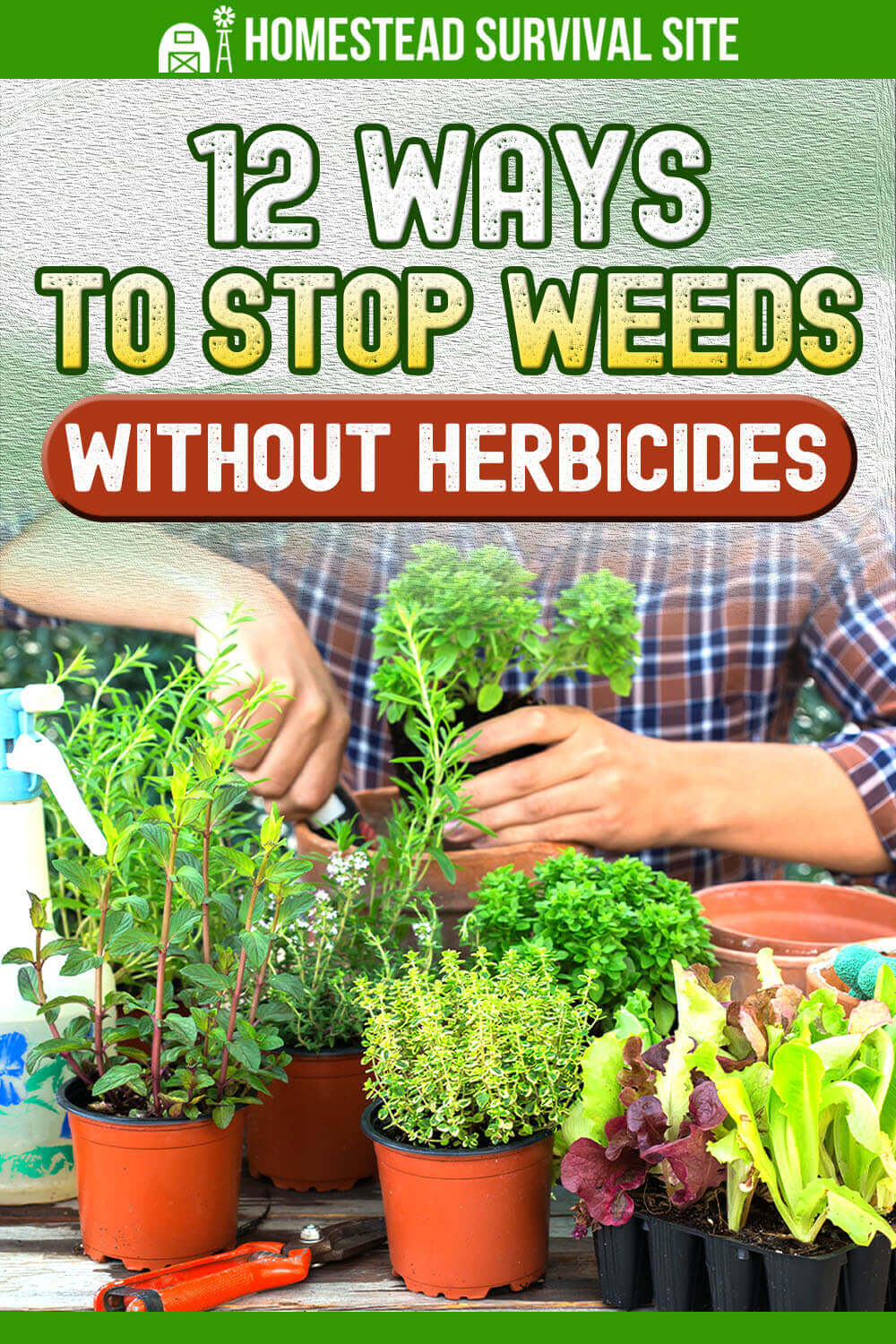


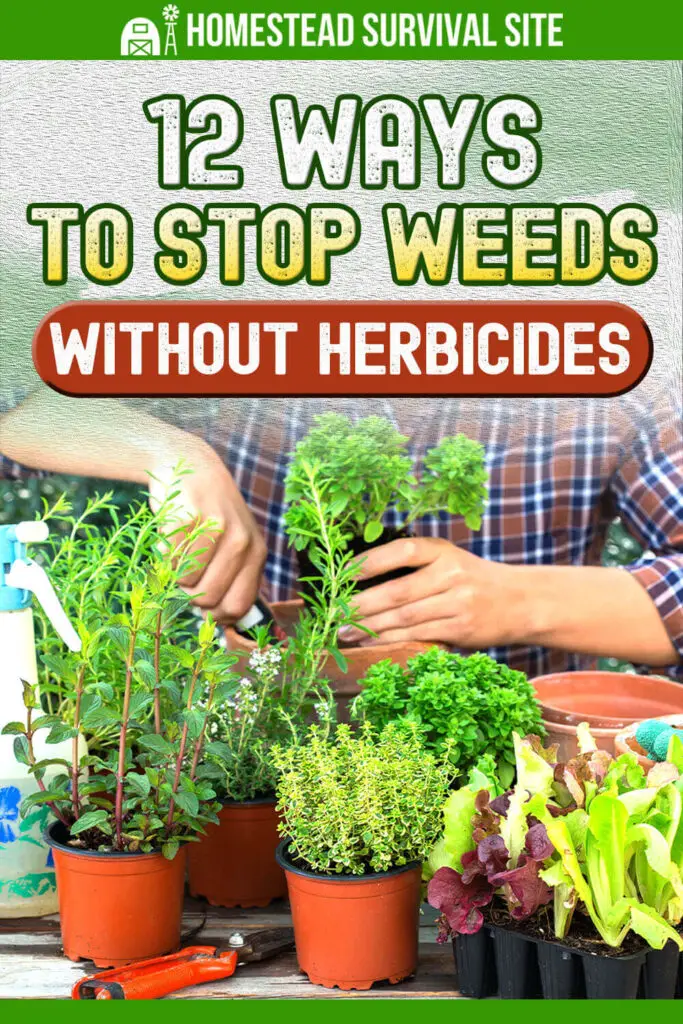


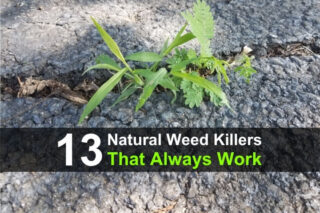
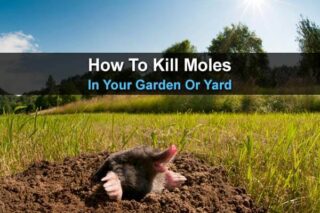
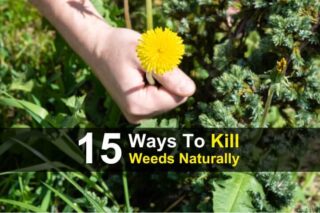
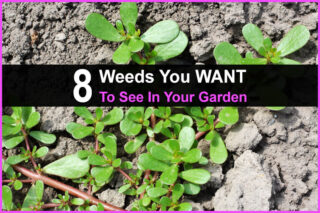


Very helpful as I already have my garden ready for planting during this Covid19 times. Found it a great way to self isolate…….without the virus………
Thanks for sharing this article it was super helpful!
It makes me happy to know I can keep my vegetable garden weed free without needing to use any nasty chemicals in it 🙂
I have a question about the vinegar mix though if anyone could help answer it for me.
The article mentions that using a salt and vinegar mix would keep anything from growing where you spray it for a while, but is that just because of the salt? I know the entry for salt says that it will prevent plants from growing but I’m curious if thats true for vinegar as well.
I tried using Google to find out but can’t seem to get a clear answer. Some sites I saw suggest it may be the case (leadingdiy.com/natural-homemade-weed-killer/) but this other one makes it sound like the vinegar itself ruins the dirt somehow? (garden-counselor-lawn-care.com/home-made-weed-killer.html)
If anyone could explain it to me I’d be super thankful! 🙂
Yes, vinegar keeps plants from growing because it lowers the pH of the soil. However, the soil won’t be ruined permanently. After a few days, it will go back to normal.
Thanks so much for the answer Heidi! ?